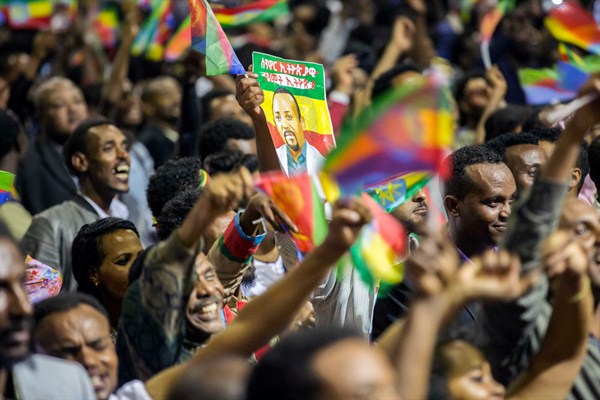The visit of Ethiopian Prime Minister Abiy Ahmed to Washington later this month presents President Donald Trump with a chance to make his first meaningful diplomatic contribution in Africa, a continent that appears to rank dead last in his global priorities. Trump can seize the opportunity by extending a White House invitation to his counterpart, who is in the United States for meetings with diaspora groups. By doing so, he would lend the weight of his office to a recent peace deal ending the war between Ethiopia and its neighbor Eritrea. The conflict lasted from 1998-2000 and cost tens of thousands of lives.
Abiy was key to ending the stalemate. Appointed prime minister in April after Hailemariam Desalegn, hobbled by more than two years of anti-government protests, resigned, Abiy immediately initiated a flurry of internal reforms. He ended the country’s state of emergency, released thousands of political prisoners, unblocked opposition websites, halted some economic controls and removed scores of the regime’s most notorious security officials. His most daring move, however, was to reach out to Eritrea’s enigmatic President Isaias Afwerki to end hostilities, which originated in a territorial dispute and festered into a situation of “no war, no peace” when Ethiopia failed to abide by an international commission ruling that went against its claims. Abiy’s outreach paid off, to the delight of citizens in both countries. Earlier this month, the two leaders declared an end to the war at a ceremony in Eritrea’s capital, Asmara.
These bold moves have created an opening that, if sustained, could make the Horn of Africa more peaceful and prosperous for its citizens. But why should Trump invest personal capital in Ethiopia, a country he has shown no previous sign of interest in?

